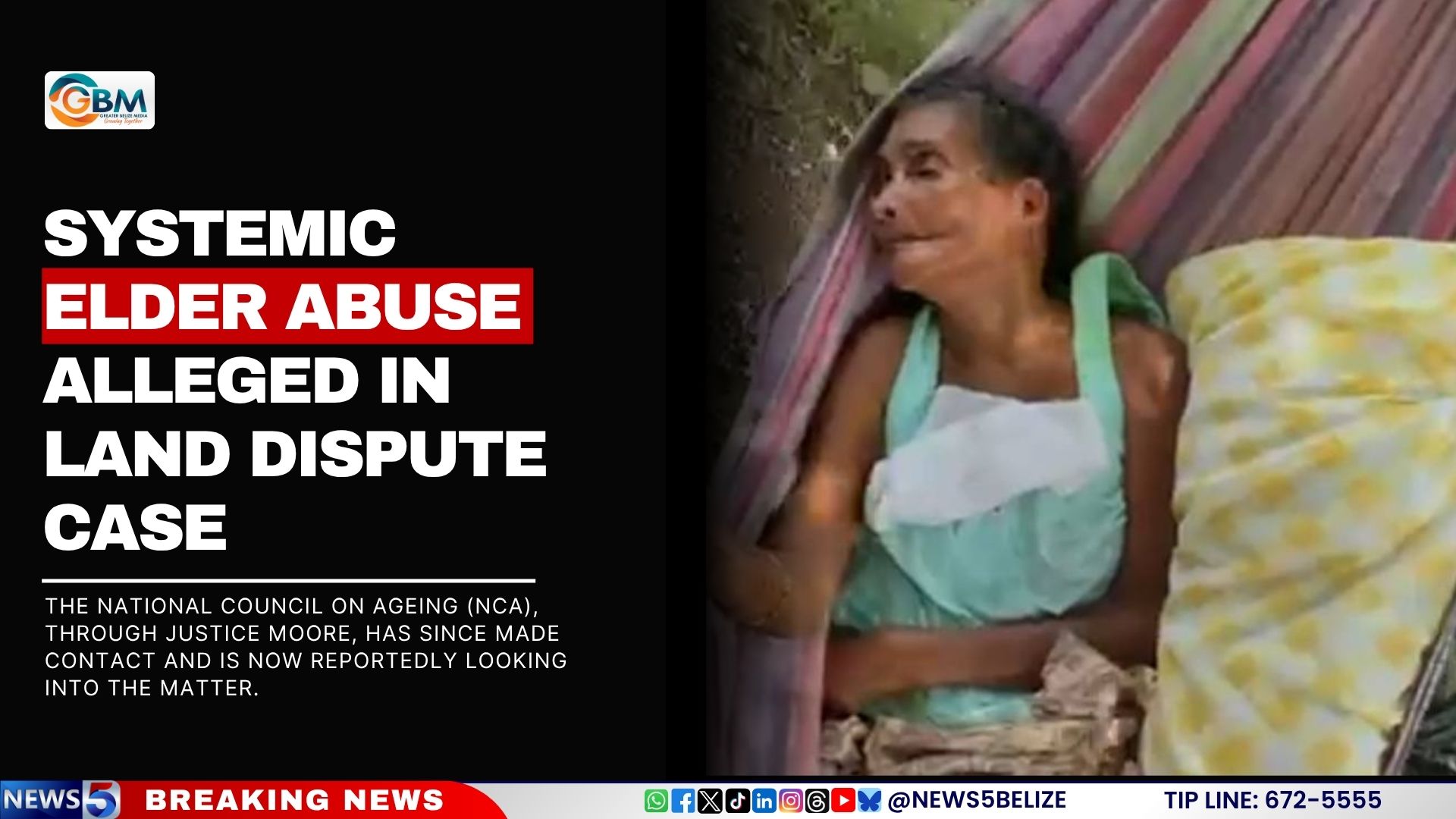An 84-year-old woman known affectionately as Mama Tona is at the centre of growing public concern after suffering a massive stroke during a prolonged legal battle to defend her land in Big Falls, Toledo. Once an active Sunday school teacher for over four decades, she has mobility and speaking challenges.
According to the Belize Home Carers Association, Mama Tona’s health deteriorated following what her family describes as relentless legal pressure and systemic neglect. Despite her age, frailty, and hearing impairment, the Supreme Court required her to be physically present in Belize City to defend herself in a land dispute, a case involving a neighbour who allegedly forged her signature to claim access to her property.
According to the association, the family says they spent over $12,000, originally meant for home repairs, to comply with court demands. But the stress, travel, and emotional toll allegedly triggered the stroke that left her partially paralysed. With a new court date looming, they have now been told another $15,000 is needed for legal proceedings, and once again, Mama Tona must appear in person.
“This is not just a land dispute; it is elder abuse. This is bullying,” the association said. They allege that the neighbour, an American national, has repeatedly destroyed fences and ignored boundaries, using Mama Tona’s land as a personal road despite the availability of a public one. Photos shared by the family show damaged fences and gates they claim were torn down by the neighbour.
The National Council on Ageing (NCA), through Justice Moore, has since made contact and is now reportedly looking into the matter.
Critics are questioning why the case concerning land located in Toledo was not heard at the Punta Gorda Supreme Court, a move that could have spared Mama Tona from the physically demanding journey to Belize City. “This is a failure of the system,” the association stated. “There are no clear protocols for accommodating elderly or disabled persons in our justice process. That is unacceptable.”
They are now calling on the Ministry of Human Development, the judiciary, and relevant authorities to revise court procedures for elderly and disabled citizens, investigate the court’s decision to require her physical presence, and acknowledge the trauma and health consequences caused by the judicial process.
The family also questioned why the courts are entertaining what they say is a “baseless” challenge to a legally titled property. “This should never have gone this far,” they added.
